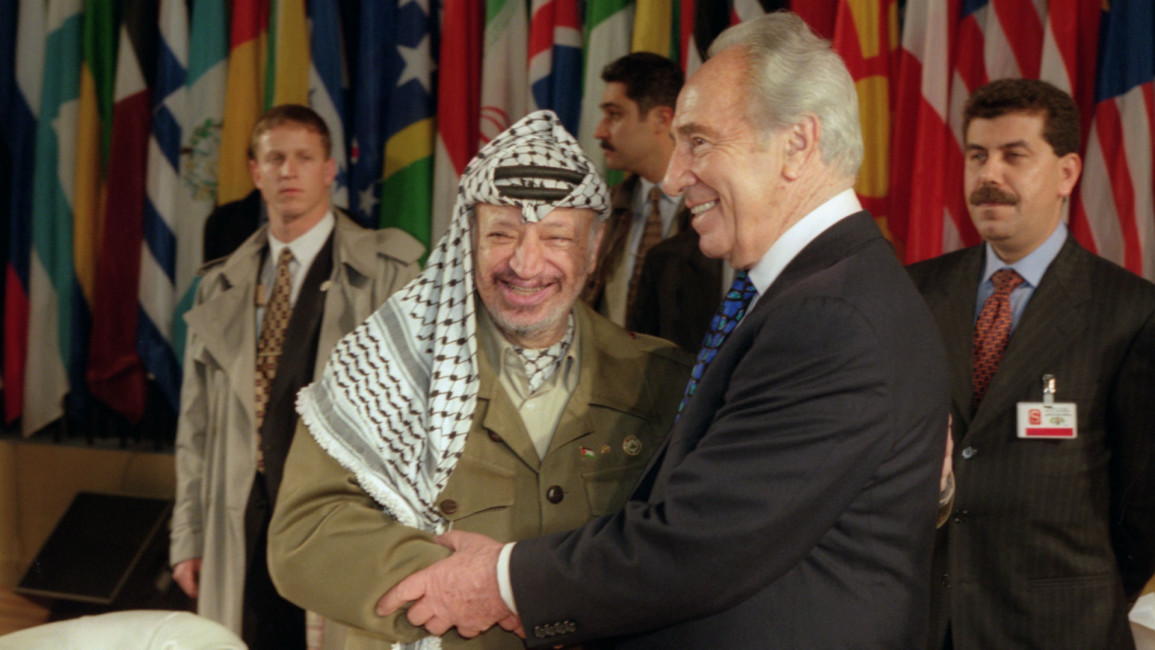Shimon Peres, founding father of Israel, dead at 93
The former president, who was twice elected prime minister, had been on a respirator in a Tel Aviv hospital.
A principal architect of the ill-fated Oslo accords, Peres' death was confirmed early on Wednesday morning.
"He served our people before we even had a country of our own," his son, Chemi, told reporters.
"He worked tirelessly for Israel from the very first day of the state to the last day of his life."
The Nobel laureate was one of Israel's most popular figures, and his life story was closely entwined with the history of the state of Israel itself. As such, Israel's allies have paid tribute to his efforts as a peacemaker, and its critics have remained scathing of his legacy manifested in the continued oppression of Palestinians.
Twitter Post
|
Described as "a political giant" by Tony Blair, another politician who draws sharply contrasting opinions, Peres was a pillar of the Israeli state, having held most major political offices available.
He was a founding figure of the state's nuclear weapons programme - the establishment of which provided the backbone of Israel's international intransigence in the face of countless global calls for Israel to make peace with the Palestinians and the wider Arab world.
Peres was also instrumental in the development of the Israeli weapons industry, and lauded the supposed precision of Israeli missiles. Despite this, the proportion of civilians killed in Israel's many military campaigns against Palestinians has always been high.
He had established relations with South Africa in the apartheid era, when much of the world turned its back on Pretoria for the state's institutionalised racism - and, later, during his seven-year stint as president, he oversaw the cementing of a similar race-based division in the Palestinian territories occupied by Israel's military, and the entrenching of Palestinian residents of Israel being treated as second class citizens.
The Haganah was one of the principal forces behind the Nakba - or "catastrophe" - during which hundreds of thousands of Palestinians were forced from their homes in the land that was to become Israel, either through direct violence and ethnic cleansing at the hands of paramilitary mobs, or through the fear such attacks had spread.
Late in life, Peres described Palestinians as "self-victimising".
"They victimise themselves. They are a victim of their own mistakes unnecessarily."
Such sentiments only strengthened his popularity in Israel.
"For 60 years, I was the most controversial figure in the country, and suddenly I'm the most popular man in the land," he remarked in his later years. "Truth be told, I don't know when I was happier, then or now."
Shimon Peres' wife, Sonya, died in 2011. He is survived by their three children, Tsvia Walden, a psycholinguist, veterinerian Yoni and Chemi, a former military helicopter pilot and venture capitalist.



